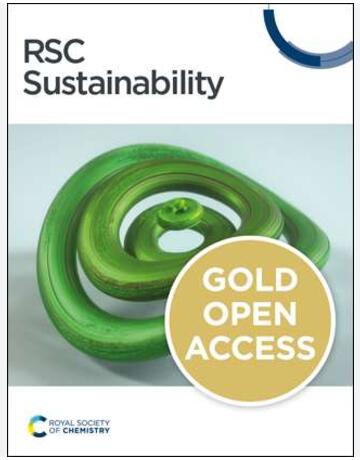城市化对南亚区域合作联盟区能源消耗的影响
IF 3.3
3区 环境科学与生态学
Q2 ENVIRONMENTAL SCIENCES
引用次数: 0
摘要
能源资源在城市化进程中发挥着至关重要的作用,而高水平的能源消耗已严重造成了令人担忧的环境退化状况。南亚区域合作联盟(SAARC)地区对能源消耗需求的增加是一个核心问题,因为在城市化增长的同时,现有的能源储备,尤其是不可再生能源的储备也在减少。本研究通过确定影响能源使用的因素,调查城市化对该地区能源消耗的影响。我们采用了全球通用的计量经济学技术来研究能源使用与城市化之间的关系。研究结果表明,模型中使用的所有自变量(除城市人口增长外)在 99% 的置信度下均具有统计意义。此外,本研究的结果还确认了从 GDP(国内生产总值)到能源消耗、能源消耗到 GDP 以及能源消耗到工业在各国 GDP 中所占份额的三个长期因果关系。我们建议:(i) 主动投资可再生能源;(ii) 在工业部门实施绿色节能技术;(iii) 通过教育提高公众对能源使用对环境的负面影响的认识。本文章由计算机程序翻译,如有差异,请以英文原文为准。
Impacts of Urbanization on Energy Consumption in the South Asian Association for Regional Cooperation Zone
Energy resources play a vital role in the process of urbanization, and the high level of energy consumption has significantly created an alarming situation for environmental degradation. Increased demand for energy consumption in the South Asian Association for Regional Cooperation (SAARC) zone is a core concern for decreasing the existing reserves of energy, especially nonrenewable energy, when the growth of urbanization is increasing also. This study investigates the impacts of urbanization on energy consumption in this region by identifying factors that influence energy use. We employed globally used econometric techniques to examine the relationship between energy use and urbanization. The results of the study indicate that all the independent variables used in the model (except urban population growth) were statistically significant with a 99% level of confidence. In addition, the findings of this study recognized three long-run causalities running from the GDP (gross domestic product) to energy consumption, energy consumption to GDP, and energy consumption to the industry’s share of the countries’ GDP. We recommend (i) taking the initiative to invest in renewable energy, (ii) implementing green energy-efficient technologies in the industrial sector, and (iii) raising public awareness of the negative effects of energy use on the environment through education.
求助全文
通过发布文献求助,成功后即可免费获取论文全文。
去求助
来源期刊

Sustainability
ENVIRONMENTAL SCIENCES-ENVIRONMENTAL SCIENCES
CiteScore
6.80
自引率
20.50%
发文量
14120
审稿时长
17.72 days
期刊介绍:
Sustainability (ISSN 2071-1050) is an international and cross-disciplinary scholarly, open access journal of environmental, cultural, economic and social sustainability of human beings, which provides an advanced forum for studies related to sustainability and sustainable development. It publishes reviews, regular research papers, communications and short notes, and there is no restriction on the length of the papers. Our aim is to encourage scientists to publish their experimental and theoretical research relating to natural sciences, social sciences and humanities in as much detail as possible in order to promote scientific predictions and impact assessments of global change and development. Full experimental and methodical details must be provided so that the results can be reproduced.
 求助内容:
求助内容: 应助结果提醒方式:
应助结果提醒方式:


